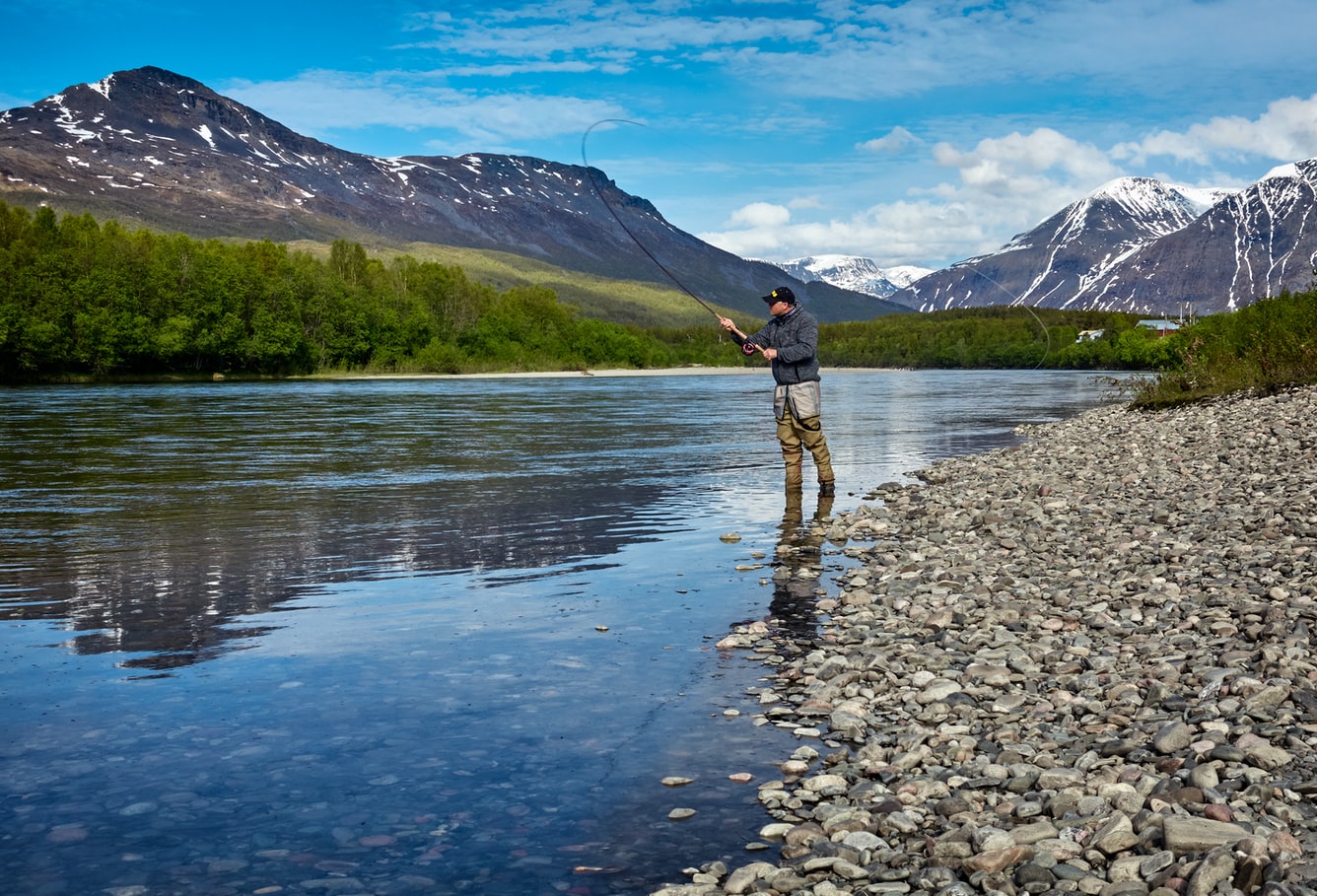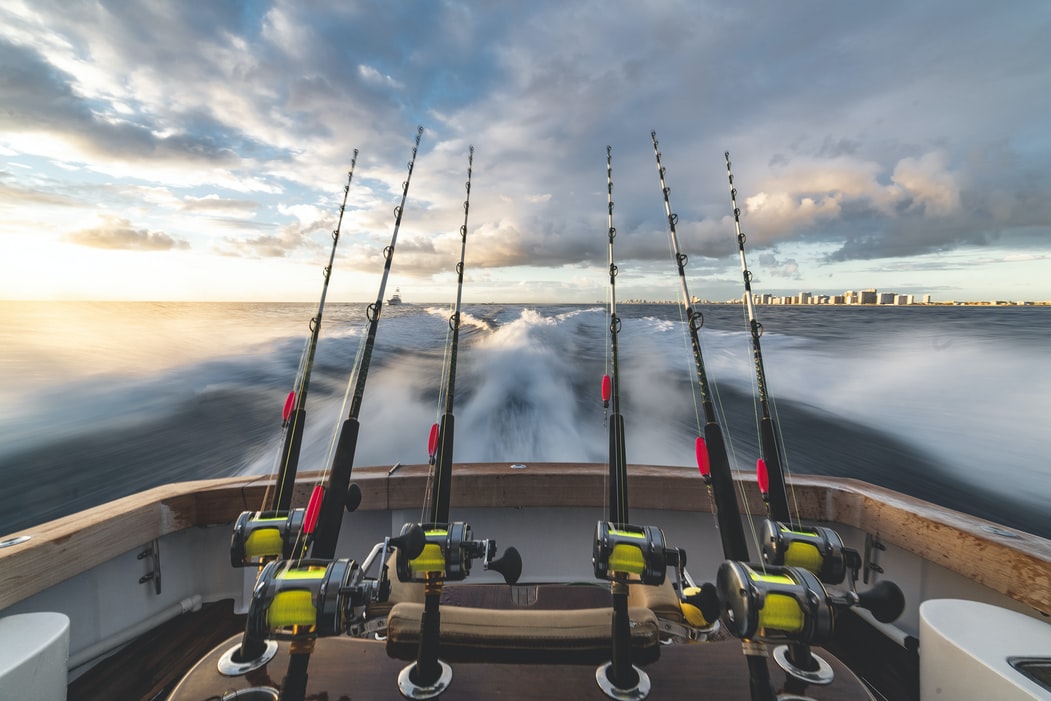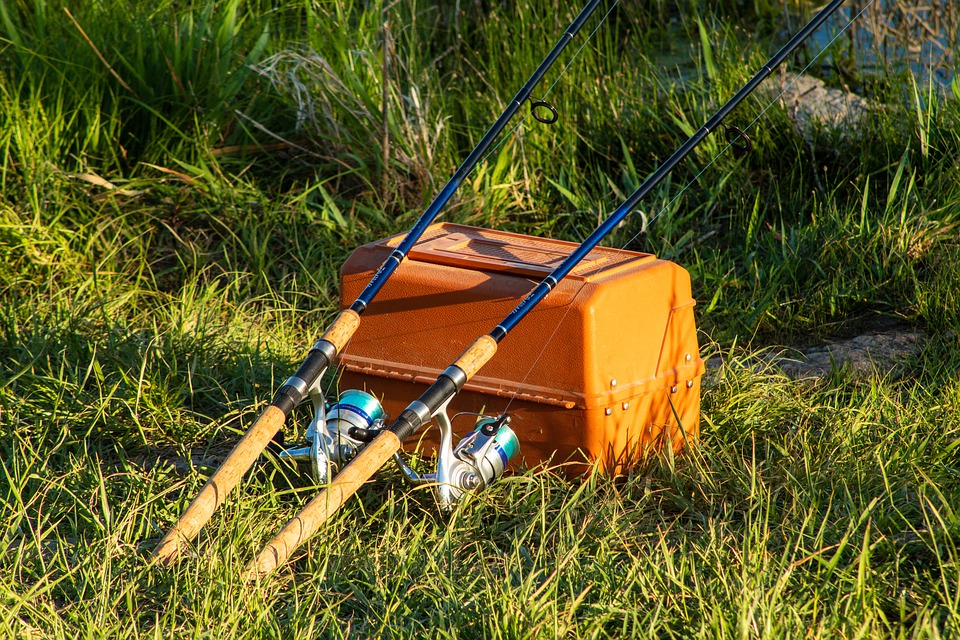
Photo: Unsplash
Fishing is a wonderful pastime. It’s a calming but exciting way to spend more time in nature — after all, any fisher would be hard pressed to find the words to describe the thrill of reeling in a big catch. Still, it’s important for us humans to take great care any time we enter habitats where plants and animals thrive, and taking a fishing trip to the lake, stream, or ocean is no exception. It’s actually really easy to be kind to the environment as a fisher, and there are a lot of ways to keep the experience a positive one for you, the environment, and all of the wildlife living in it.
Follow Local Fishing Laws and Ordinances
While it may not be ideal for there to be restrictions on when, where, and what you can fish, these limiting laws are in place to protect human, environmental, and wildlife health. Some parks check each fisher’s bounty before letting them leave the area to make sure they followed all legal guidelines (in many cases, handing out hefty fines to those who don’t), but many areas rely on the honor system, so it’s important to abide.
There are all kinds of reasons these types of guidelines are in place, and each should inspire you to do the right thing. For example:
- In order to keep certain species from being overfished, you may be limited in the size or number of at-risk populations you’re allowed to catch.
- If certain species have been known to be diseased, you may be banned from catching them.
- It may be dangerous to be around the water during certain events or times of the year, and fishing will be banned. For example, during algae outbreaks like red tides, beach access may be completely prohibited. Not only is this important for human health, it also prevents excess debris from impacting the coastline as well as the animals that live there.
Mind Your Boat’s Carbon Footprint
Oil use in boats is just as big of an environmental problem as with land and air vehicles. While you don’t have to trade in your motorboat for a paddle-powered rower, there are things you can do to reduce air emissions and prevent harmful chemicals from leaching into the water and ground:
- Only turn on your engine when necessary. Try not to keep gas-powered boats in idle when you don’t truly need to.
- Stay up to date on boat maintenance. Vessels that are in disrepair can leak oil and other substances, which can poison water and land habitats.
- Avoid spilling at sea by only opening chemical containers and refilling your boat’s fluids ashore, preferably in an area away from the water.
- If harmful chemicals are spilled onboard, sop them up immediately, but clean or dispose of the rags you use to absorb it only after you reach land.
- Recycle used oil as well as any containers that have held it. Never rinse oil from your boat or another object into the environment.
- Keep the outside of your vessel clean. The more build-up that’s accumulated on your hull, the harder it is for your boat to move through the water, and the less energy-efficient its gas usage.
- If you set sail on a windy day, travel with, not against, the airstream in order to maximize your boat’s energy efficiency.

Photo: Unsplash
Avoid Using Contaminants in Vessel Maintenance
Many boat owners use antifouling paint on their ship’s hull to prevent algae, barnacles, and mold (known as fouling marine organisms) from taking up residence there. However, these substances are ecologically detrimental both to wildlife and humans. That’s because they bioaccumulate, meaning they’re absorbed by small organisms, which are then eaten by larger and larger organisms — including humans. Unfortunately, antifouling paint can be hard to avoid, but there are strategies for reducing your need for it, such as opting for regular paint with a coat of protective wax and then storing your boat on land rather than in the water.
Additionally, use non-toxic cleaning materials as much as possible on the inside and outside of your boat. Poisonous chemicals used on the exterior of your boat will release into the water, while those used on the interior are easily tracked into the environment via passengers. You can even make your own eco-friendly cleaning solutions that will keep your vessel sparkling from top to bottom without risking harm to surrounding nature.
Don’t Pump Raw Sewage into the Water
Not only is this illegal in most regions (and just plain gross!), it’s harmful to land and water wildlife as well as any people who enjoy taking a dip in the area. Human and animal waste may contain diseases or carry antibiotics that can have severe impacts on natural habitats, so if your boat has a toilet, dispose of waste in accordance with local laws.
Travel Slowly in Water with Vulnerable Wildlife
If you’re driving a motor boat, you need to be careful of hitting manatees, dolphins, seals, and other large marine life, especially in the ocean or other bodies of salt water. There are usually speed limits in areas where these types of creatures are at risk, so be sure to obey them. Even after you’ve reached more open waters, be sure to slow down if you spot one of these animals.

Photo: Unsplash
Be Kind when Catching and Releasing
If you plan to catch and release any of the fish you catch, do so mindfully. Handle them gently, avoiding touching their gills and eyes as much as possible. Be careful when removing them from hooks, and return them to the water as quickly as you can so they have the best chance of survival.
Use Green Fishing Gear
Look for fishing equipment that’s free of toxic materials, such as lead, which is sometimes found in sinkers. You can also opt for one or more of these eco-friendly tools:
- Eco-friendly line
- Biodegradable lures
- Glass rigs
- Items made from recycled materials
Also be sure to recycle these items as much as possible. For example, fishing line is often made of reusable material, and poles’ plastic and metal parts can usually be taken apart and recycled.
Be Wary of Feeding Wildlife
It’s fun to feed birds, critters, and fish when you’re spending the day surrounded by nature, but proceed with caution. Not all human food is safe for animals to eat, especially if it contains sugar, chocolate, or spices like pepper. Plus, depending on where you’re fishing, you could attract unwanted company by sharing your picnic basket. If you’re in a wooded area, it’s possible to lure out a bear if it sees you passing out snacks, and throwing meat into the ocean could draw the attention of dangerous shark species.

Photo: Pixabay
Leave the Area the Way You Found It
Whatever you bring to your fishing expedition needs to be taken with you when you return home. This includes your gear, food, and beverages, but it also goes for any waste that you produce, like food packaging and discarded hooks.
Go the Extra Mile
Leaving the area as clean as it was when you arrived is common courtesy for wildlife, the environment, and your fellow fishermen. Of course, if others haven’t been as kind, why not go the extra mile by picking up any litter you notice in the water and on the shore? In addition to making an immediate difference, you may also give your peers a gentle nudge about taking care of the water, coastline, and the area’s inhabitants.
For fishers, there’s nothing better than a day spent in the water or onshore reeling in catch after catch. However, it’s extremely important to be responsible in caring for the environment while doing so. After all, the way you treat these habitats affects the health of the animals living there — including the fish you catch and eat, meaning your actions have a direct impact on your own wellness. By following local laws and being mindful of your behavior while in the great outdoors, you can be sure to make a lasting positive impact with each fishing expedition.
